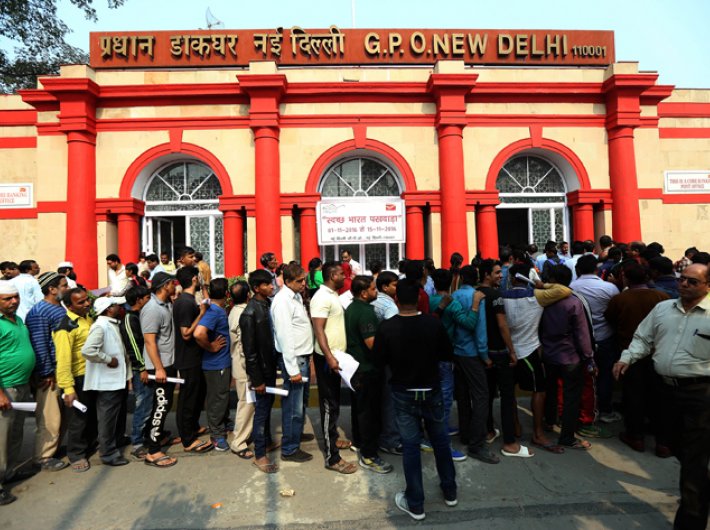It’s been 10 days of suffering and chaos for people,and the way the government is continuously learning from its mistakes - announcing reliefs and exemptions, and then even rolling back some - it is transparently clear that the government was not at all prepared for the aftermath of its ban on high-denomination currency.
Though some measures have been taken to relieve the trauma to the common man, but they are all too little, too late. If the government had done proper planning it could have avoided a lot of hardships - and even saved more than 30 lives too. We list down 7 things about which the government should have thought before launching this mammoth drive.
1. Demonetisation has stalled big fat Indian wedding dreams of many people (except the Rs 500 crore wedding of ex BJP minister G Janardhana Reddy’s daughter in Bangalore). The demonetisation move came right a couple of days ahead of the start of the marriage season. Cash is needed and families can’t leave the preparations to stand in serpentine queues for exchanging notes.
Read: Demonetisation hits weddings
Of course, it was to ease these woes that the government on November 17 announced that Rs 2.5 lakh can be withdrawn on the evidence of the wedding invitation card. For many families, this decision must have come too late. If wedding is an admissible excuse, the government should have thought of it right at the time of the November 8 announcement.
2. The Indian farmer, who is already battling surmounting debts and climate change, is further hit by the move to curb black money. The Rabi sowing season has commenced in the country. Rabi crops like wheat and mustard are sown in November and harvested in April/May. The farmer does not have the cash on hand to buy winter crops seeds and fertilisers. This has brought the whole food-chain cycle and farm economy to a halt. Notably, agricultural income is not taxable, and hence there is no black money involved. On November 17, exception was made for farmers - which again shows that on November 8 and over a full week the government was not aware of it.
3. Emergency measures in case of accidents or other mishap were not taken into consideration before launching the move. So far 30 deaths have been reported due to demonetisation. Provision of mobile ATM vans outside hospitals should have been a pre-planned move, rather than an after-thought.
4. The government has seriously underestimated the savings of an Indian housewife, which can go beyond Rs 2.5 lakh. This would land the account of every other Indian housewife under the government’s scrutiny.
5. Banking has failed to penetrate the hinterlands of the country. As a result people are mostly dependent on cash transactions. For example, over 70 percent of Odisha's gram panchayats don’t have a bank branch. Chief minister Naveen Patnaik has even pressed on the need for mobile banking services in these regions to cope with the demonetisation crisis.
6. Business correspondents of banks were allowed to carry more money to help villagers exchange notes - but a full week after the move. Cooperative banks have sizeable presence in the rural areas, but are not allowed to exchange old notes. BJP MP Vithal Radadiya, among others, has demanded that the RBI should consider allowing cooperative banks to do so.
7. The production of new notes is certainly not in keeping with the demand. Why didn’t the government think that the demand of Rs 100 notes would surge and they should have been printed in huge quantities to avoid the chaos? In fact according to a report by the
Telegraph India, the RBI is recycling soiled notes which were bound for the shredder to meet the surging demand. Moreover, as per
Live Mint, the presses at Dewas (Madhya Pradesh) and Nashik (Maharashtra) are running below capacity, leading to a delay in the release of new notes.
